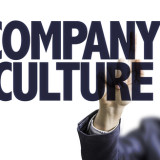Understanding Organizational Culture & (Maybe) Changing It
Organizational Culture: “The values and behaviors that contribute to the unique social and psychological environment of an organization.” – Businessdictionary.com
Anthropology being my primary background, I was trained to see culture and equipped with tools that help me understand what I see. Sometimes it works, but much of the time I feel as baffled, misled, and confused about the world as anyone else.
We all encounter “organizational culture” in our professional lives. There are outstanding popular culture sources where we can see organizational culture in action: “The Office” TV series is the first that comes to mind. I initially found it difficult to watch because the situations and characters (although somewhat exaggerated) were so familiar: unreasonable bosses, selfish co-workers, senseless bureaucracy, petty meanness, etc. But I kept watching and discovered that these characters were all human and all worthy of empathy and respect. It gradually became apparent that the system in which they worked changed them, and most often it changed them negatively. Being in frequently stressful situations brought out negative attributes and actions. We all have stress behaviors, and they are usually not pretty. We don’t all have office jobs but many of the issues are similar – if you work in manufacturing, in an oil field, on a farm, in retail. Different situations, different roles, yet similar challenges with people.
If you are in a job and want to change organizational culture, you may find yourself challenged and eventually disappointed. It is hard to change culture – even from the top down, maybe especially from the top down. People are creatures of habit, and once habits are formed they are difficult to change. Cultures that can change have a few features in common: 1) trust in leadership and in peers; 2) predominance of team players who want to work with others and either don’t want or need all the credit control; 3) clear and adhered-to organizational mission and values.
If you are looking for a new job, however, you face a different challenge: figuring out the organizational culture and how you can fit into it based on often limited information. This is a situation where, despite my anthropological background, I am left baffled. I have mulled over this process for some time, and I persist in being uncertain how to do this well. You can learn certain things from the interview – are the questions highly structured or more casual? That may give insight into the nature of the work environment (i.e. formal vs. creative). Do people seem happy and comfortable in their work spaces? Is there a clear status hierarchy? (This shows up by observing how employees interact with “bosses”). Even with your best observations and questions asked during interview(s), people will behave differently towards you (often more cordially) when you are being considered for a position. What are they like day to day? Very hard to know. Do the best you can, trust your instincts, and remember that they are trying just as hard to figure you out. Be open, empathetic, and positive. You may be surprised.
If you are conducting a job search or considering a change please contact us at info@careersolutionsgroup.net. We offer free initial consultations that will help you understand the job search process in greater detail.
By: Bryan Dennis, Career Solutions Group
References:

